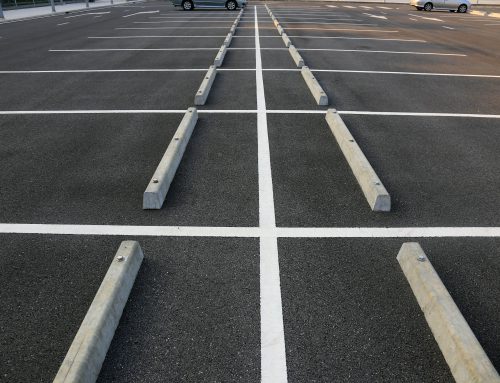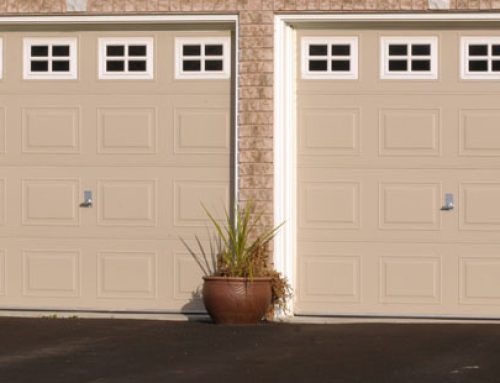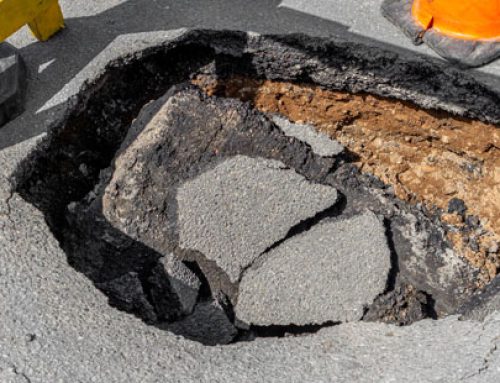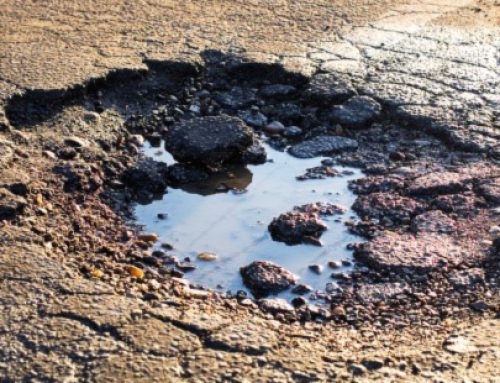Driveway cracks are not only unsightly; if left untreated, they can also lead to more extensive damage. Cracks can accumulate dirt, and weeds can grow in them. They also allow moisture to seep into the asphalt and erode the base of your driveway.
Sealing cracks at the first sign of damage is the best option for keeping the pavement strong and extending the longevity of your driveway. Property owners can fill small cracks, but larger chips and cracks require the attention of an asphalt paving contractor.
Pro Tips for Asphalt Crack Repair:
- Sweep away dust and dirt
- Remove any vegetation
- Use cold asphalt patching for cracks and small holes
- Pack down and compact the patching material
- Allow the patch to cure for 24 hours before driving on it
Other details are involved in filling cracks, so read the asphalt filler directions carefully before starting the project. When in doubt, contact an experienced professional if needed.
How To Fill Asphalt Cracks
Consider filling cracks during fall or spring rather than summer or winter. Since asphalt tends to expand and contract during extremely hot and cold weather, the pavement may pull away from the patching material if you try to repair cracks during summer or winter.
1. Sweep away and clean out any loose dirt or debris from the crack and remove any weeds. You may also want to rent a heavy-duty vacuum or other asphalt repair equipment to thoroughly clean the cracked area and ensure no residual dirt or debris remains.
2. Fill the crack with cold asphalt filler – be sure to overfill it by about an inch. Use a small blowtorch to heat the asphalt patching compound, so it becomes pliable and seeps into the current asphalt.
3. Allow it to cure for a full 24 hours.
A Word About Hairline Cracks
The minor imperfections along the surface of asphalt are known as hairline cracks. These cracks may not seem like a serious problem but remember that they can allow asphalt to absorb moisture and other harmful debris – they can also grow and spread to become deeper alligator cracks or chips. Hairline cracks also typically spread across the entire surface of a driveway or parking lot.
Instead of trying to fill in all of these cracks with a patching compound, it’s best to call an asphalt contractor and have your driveway or parking lot covered with a fog or slurry seal. These seals consist of a thin, watery type of asphalt spread or sprayed over the existing pavement. The slurry seeps into the cracks and forms a solid surface.
Fog and slurry seals are effective at filling in large areas of hairline cracks – and they also improve the appearance of asphalt and restore it to its original dark and appealing color. They also provide a layer of protection between the asphalt and moisture, sunlight, and other elements that can cause damage. This type of asphalt crack repair can prolong the life and beauty of your asphalt driveway.
How to Maintain Your Asphalt Driveway
Once the damaging cracks have been filled or sealed, here are some practical ways to maintain your asphalt.
- Hose down the pavement regularly to remove surface dirt, silt, and other damaging debris. Hosing down asphalt in the summertime also keeps it cool and helps prevent it from becoming brittle and cracking.
- Regularly power-wash your asphalt driveway with detergents. This will remove harmful chemicals, damaging motor oil fluids, and lawn care treatments, like fertilizer.
- Seal and repair cracks and chips as soon as possible to prevent them from becoming worse.
- Schedule regular sealcoating as recommended by your asphalt contractor. Sealcoating protects your asphalt and prevents cracks and other damage.
When should you call a professional for asphalt crack repair?
If your asphalt driveway or parking lot has a large number of cracks or potholes, it’s not a good idea to keep filling these in with over-the-counter patching materials. Call an experienced local asphalt contractor, like Premium Asphalt Paving & Sealcoating, to repair the damage properly.
Our dedicated paving contractors proudly serve central and eastern Texas – including College Station, Bryan, Brenham, Temple, and Waco. Contact us today for a free estimate on your next residential or commercial project.








